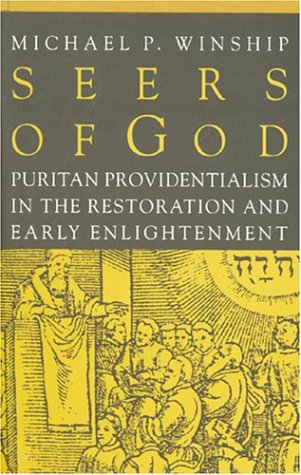Early America: History, Context, Culture
1 total work
Early-17th-century Puritans believed that divine Providence revealed itself through wonders. Storms and earthquakes might be messages from God. The fainting of a member of the House of Commons could represent an omen. Depressed people might puzzle whether their states of mind were due to God, magic, or simple melancholy. This fascination with the wonders and communications of God, some of them quite dark, accompanied the Puritans to Massachusetts. Observing that intellectual changes within late-17th-century Massachusetts Puritan culture closely paralleled changes within Puritan culture in England, this book re-examines one of the more problematic issues in the intellectual history of early New England. How did the logic of Puritanism square itself with the increasingly hostile assumptions of the early Enlightenment? And, faced with a new intellectual world whose parameters were formed to a large extent in opposition to Puritanism, how did Puritans try to maintain credibility? This analysis of topics ranging from theology to witchcraft places the problem of intellectual change fully in a transatlantic context.
